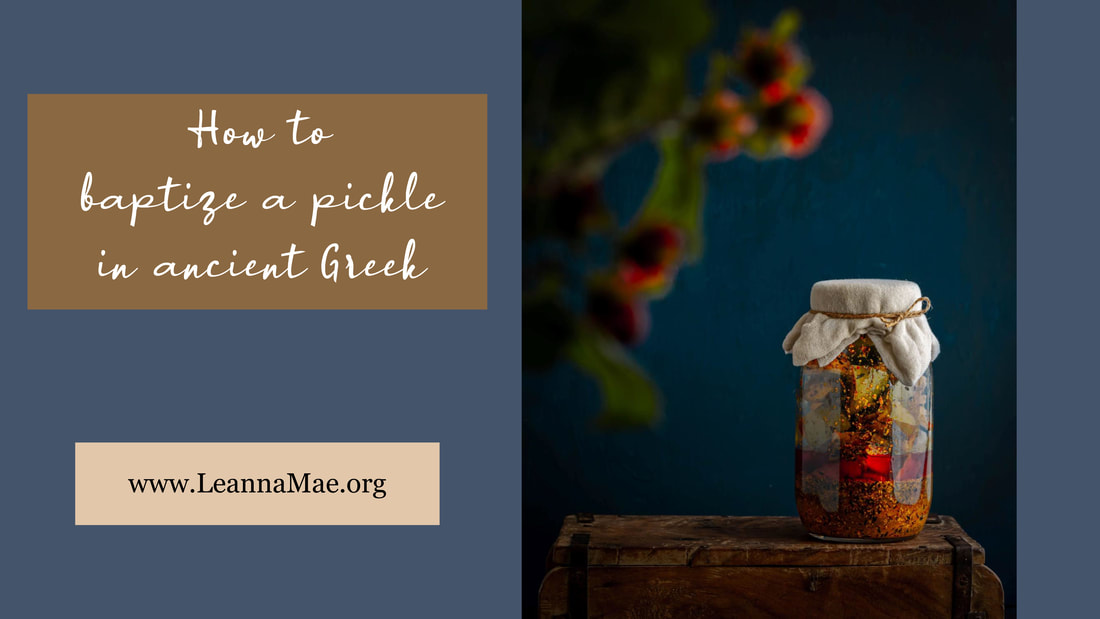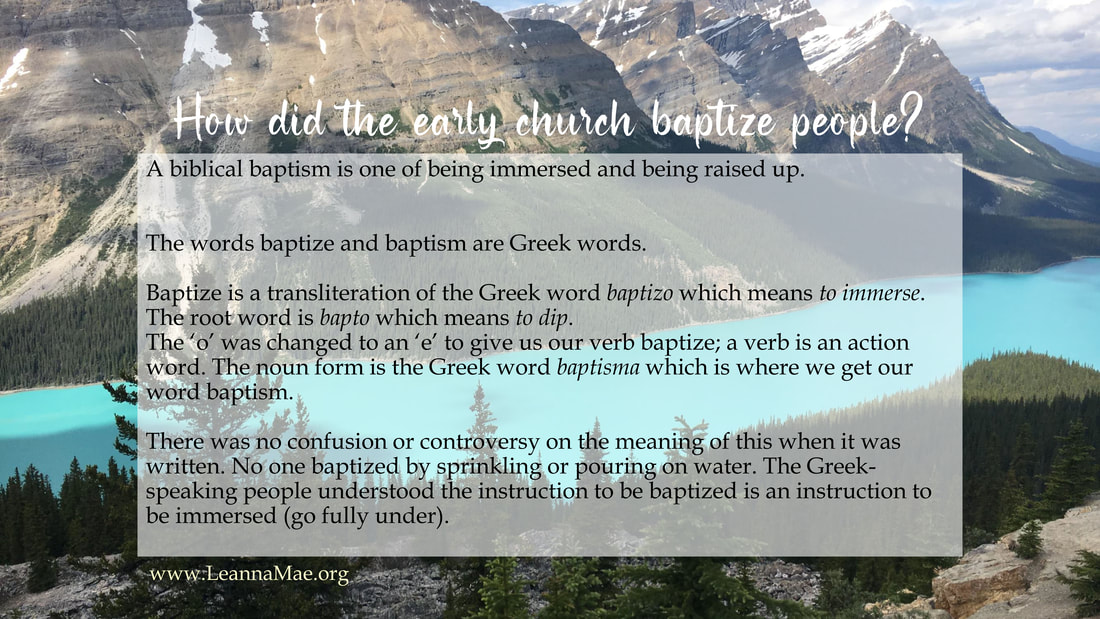|
There is a very old recipe on how to make pickles. If you’re familiar with canning, you know that pickles are cucumbers put into a solution (recipe) that turns them into pickles. What does that have to do with baptism? In my book, The Subject of Salvation, I share the neat language lesson that the words baptize and baptism are actually transliterations. They are Greek words that have been transliterated into English. Baptize is a transliteration of the Greek word baptizo which means to immerse. The root word is bapto which means to dip. The ‘o’ was changed to an ‘e’ to give us our verb baptize; a verb is an action word. The noun form is the Greek word baptisma which is where we get our word baptism. In modern times, there is some controversy over whether baptism requires full immersion or whether sprinkling/pouring on water is acceptable. In the early church, they fully immersed someone in baptism. That is why we Apostolic Pentecostals still baptize by immersion. We practice what the early church did. The New Testament was written in Greek. The Greek-speaking people understood the instruction to be baptized is an instruction to be immersed and go fully under in the water. But did you know the word baptize used to be used in other contexts? Around 200B.C. there was a Greek poet and physician, Nicander of Colophon (modern day Turkey), who had a recipe for making pickles. In this recipe, the instruction was to bapto (dip) the cucumber in boiling water and then baptize (immerse) it in a vinegar solution. The dip in boiling water would cleanse the outside. Immersing it in vinegar is what transforms it to a pickle. Once these cucumbers were baptized in the solution, they became pickles. They were transformed. Their nature was changed. They could never go back to the way they were before. Acts 2:38 (KJV) Then Peter said unto them, Repent, and be baptized every one of you in the name of Jesus Christ for the remission of sins, and ye shall receive the gift of the Holy Ghost. When I learned about this recipe, my thought was “Be immersed in the name of Jesus”. How powerful is that perspective? Be immersed. Be immersed in the name of the Lord. Be changed. It changes our nature when we immerse ourselves in following Jesus. Be changed. Become a new creature. Go down in the water in the name of Jesus and come up cleansed. Be transformed. Then I thought about the verses referencing the baptism of the Holy Ghost. Wow. That’s fire. What happens if a person immerses themselves in the Holy Spirit? The point of this blog is to address the controversy over whether baptism requires immersion, but I wanted to share those powerful thoughts about immersing ourselves in the name of Jesus and the Holy Ghost. We are buried with Christ and raised with Christ when we get baptized in his name (Romans 6:3-8). We are a new creation when we are in Christ (2 Corinthians 5:17). We can never go back to our former ignorance. We are changed. We are transformed. Our nature is different. After baptism, let’s live in a way that we are immersed in the name of Jesus. If you’d like to learn more about baptism, there is a bible study on my website here.
2 Comments
Brother Larry
10/5/2024 01:18:11
Hi !
Reply
13/5/2024 21:23:06
Hi, Brother Larry. The Strong's concordance reference is #907. The Greek word baptizo means to submerge or dip under. The word it's derived from, bapto, is Strong's concordance #911. That means to dip or cover wholly with a fluid. I'll link to the interlinear bible here with direct links to each word's page.
Reply
Your comment will be posted after it is approved.
Leave a Reply. |
Donations allow more time to write blogs and build this resource that is freely available to all.
Leanna Mae
Apostolic Pentecostal Christian
|
international author |
maternal-infant wellness educator
|
birth doula
|
breastfeeding specialist |




